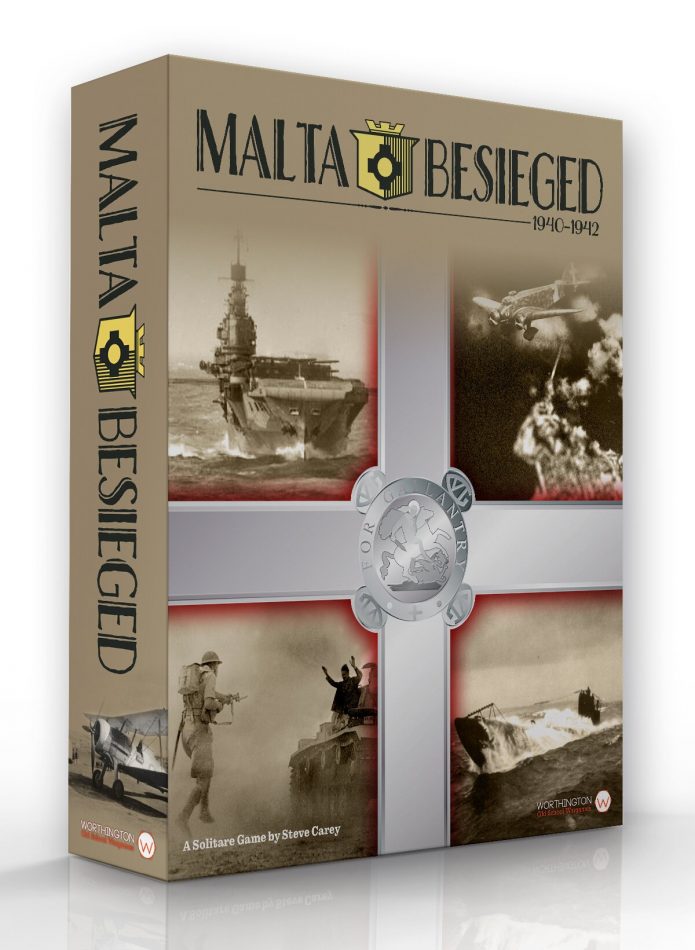Malta Survives Alone: A Review of Malta Besieged
By Richard Steer
Kickstarter really is a terrible thing for a wargaming magpie. I’m normally pretty good at keeping away from it, but every now and again I’ll scroll through and a project that I just have to back will catch my eye. So it was last year when I saw that Worthington Publishing was running a Kickstarter for a reprint of Malta Besieged 1940-1942.
Despite never having been particularly into board games, the subject of the game, being the Mediterranean theatre during the early years of World War 2, immediately interested me. The game arrived recently, and having completed my first play-through I’m very pleased to have backed the project.
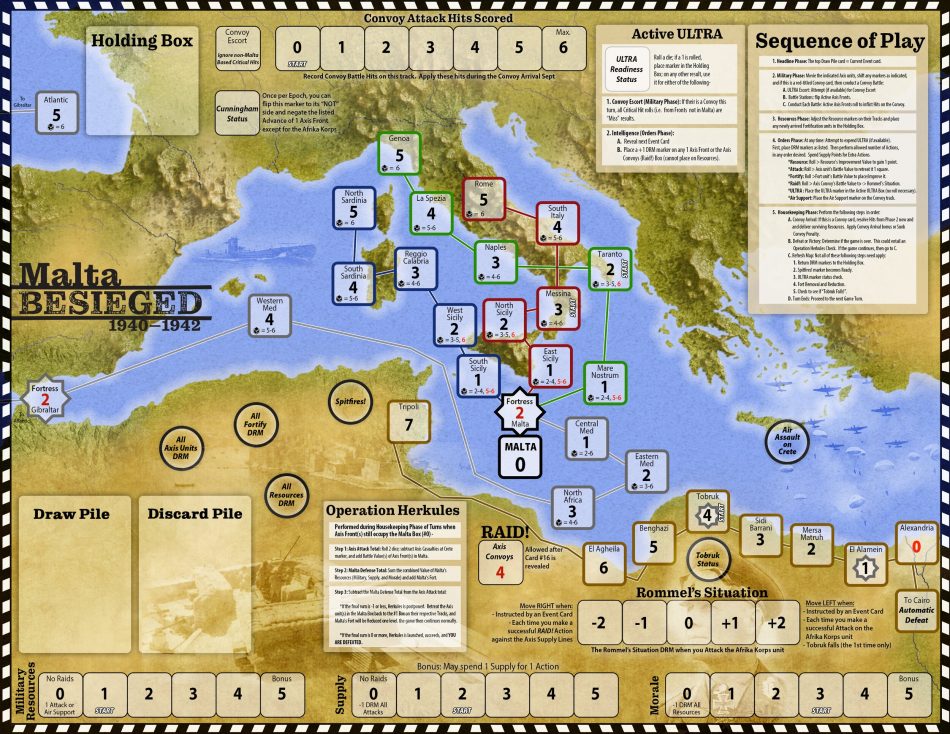
Malta Besieged is a solitaire resource management game. The player takes the role of the British commander in the Mediterranean theatre, with the Axis being controlled by card-driven events. These Event Cards are all based on history and include supply convoys such as Operation Pedestal, major battles in North Africa, and occasionally significant events outside the theatre like Operation Barbarossa.
Each turn starts with the draw of an Event Card, which triggers the movement of Axis forces and initiates supply convoys. The player can then undertake a number of actions that are specified on the card, which can include things like attacking Axis units or improving the fortifications at Malta and Tobruk. The final stage of the turn is determining convoy losses, before resetting the board for the next turn which starts by drawing another Event Card.
The gameplay is divided into three Epochs, each with its own deck of cards. The Early Epoch starts in June 1940 and runs until Rommel arrives in the Desert in February 1941. The Middle Epoch continues the timeline until the end of Operation Crusader in December 1941, before the game concludes with the Late Epoch with Operation Torch in November 1942. There is an option to follow the historical timeline by using the Event Cards in numerical order, but the standard way to play is with the cards shuffled.
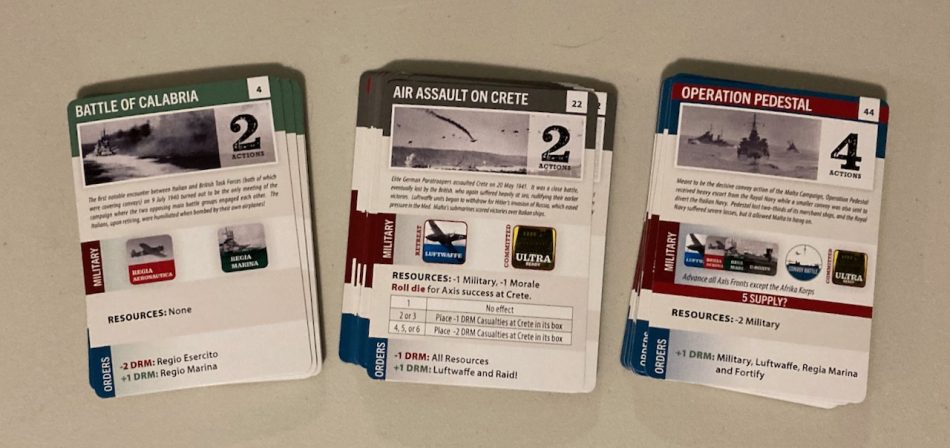
The military situation is abstracted by a number of “Fronts” that run on tracks, with each Front representing a branch of the Axis armed forces such as the Luftwaffe and Regia Marina. The Event Cards determine when Fronts advance along their tracks, and they retreat when you conduct a successful Attack action against them. Driving back the naval and air force Fronts along their tracks reduces the risk they pose to Malta and increases the chance that your convoys will make it through unscathed. This low level of complexity for military operations keeps your focus firmly on managing resource problems.
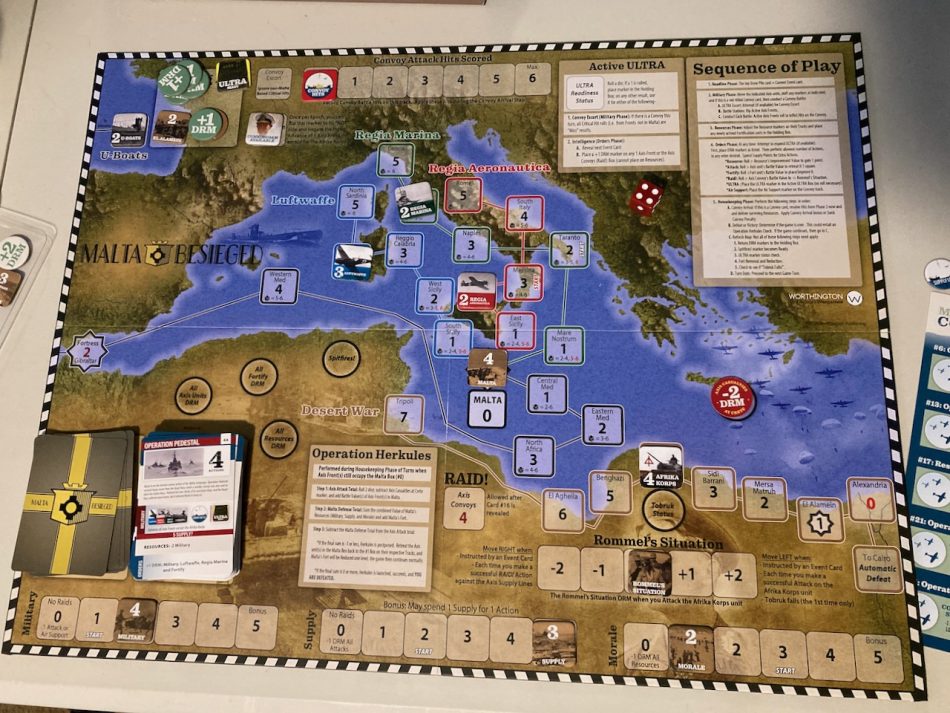
Malta’s resources (Military strength, Supply, and Morale) must be maintained while also keeping the Axis Fronts at bay, otherwise, the island could be subjected to Operation Herkules: an airborne invasion that historically never took place. The Afrika Korps could march into Cairo if inadequate attention is paid to the situation in North Africa. With a limited number of actions able to be undertaken each turn, this is a balancing act and the game can very quickly turn on a few bad events.
The game mechanics are simple but include some very neat touches. For example, the level of casualties sustained by the German airborne forces in the invasion of Crete affects the likelihood of Malta being invaded. The effect of supply lines on the campaign in North Africa is reflected by combat modifiers: forcing Afrika Korps to retreat shortens its supply lines which in turn makes your next attack against it more difficult.
Victory conditions are based primarily on Malta’s survival. You lose if Malta is invaded, Alexandria is captured, or all of your Resource tracks are at zero at the end of a turn. If none of those occur before the end of the game, then the size of your victory depends on the situation in North Africa.
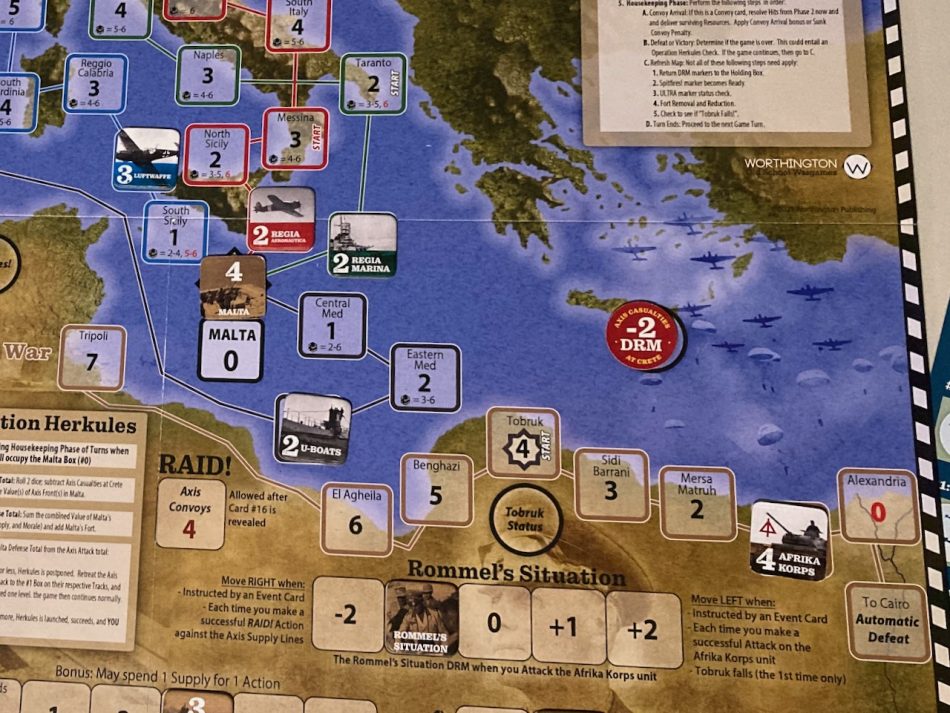
My first game finished as a draw with the status of “Malta Survives Alone.” I had avoided invasion and pushed the Afrika Korps back from El Alamein, but Rommel was still firmly established on the Egyptian frontier and Malta was under huge pressure from Axis forces.
It had been a nice way to spend a couple of hours: I had been forced to make some difficult decisions, my fortunes had ebbed and flowed, and I had enjoyed reading the historical notes on each Event Card as they came up. The mechanics are simple and quick to learn, and it looks like the game has a reasonable amount of replayability through the random order of the Event Cards and a number of optional rules that change the difficulty.
With its firm focus on resources, while still giving the player influence over an abstracted military situation, Malta Besieged takes a different approach to a pivotal campaign in World War II. I found it to be an interesting and enjoyable game, and it is well worth checking out.
